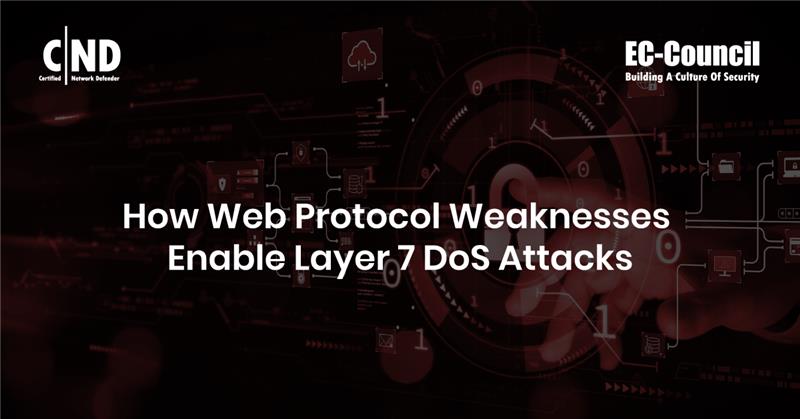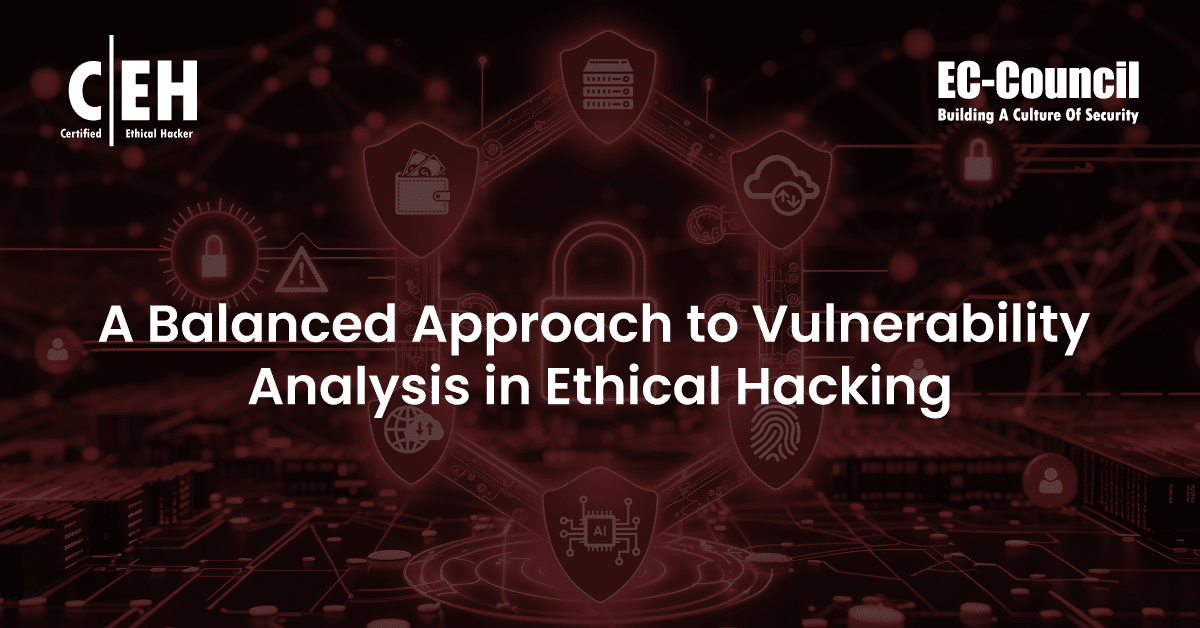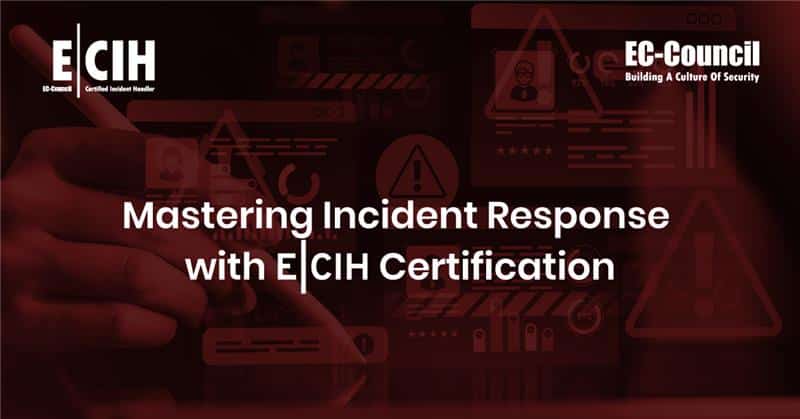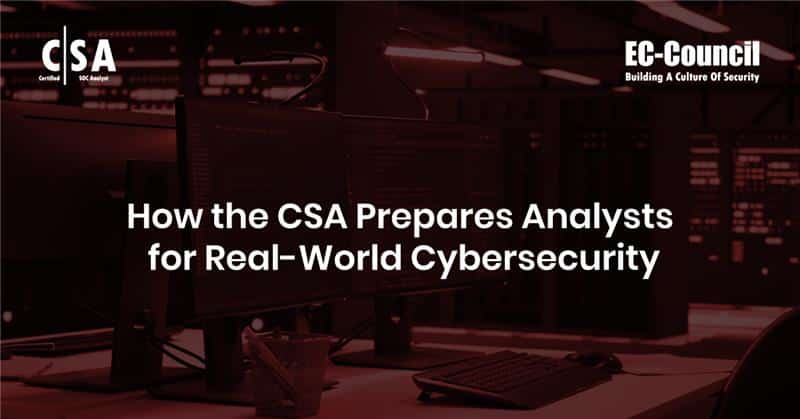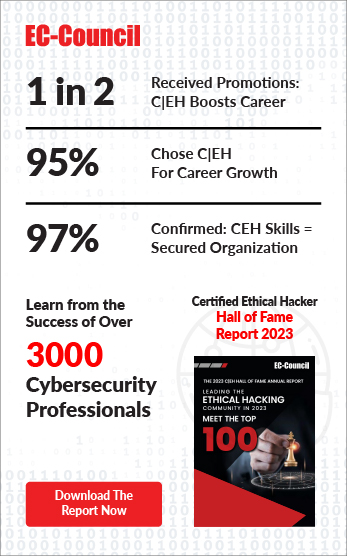Basic Ethical Hacking Skills Required to Become an Ethical Hacker
As technology advances, so does the need for more robust cybersecurity. Organizations of all sizes are vulnerable to attacks, and combatting these threats requires employees with the right skill sets to meet the various ethical hacking requirements for specific job roles. While there are several approaches to acquiring basic ethical hacking skills, obtaining a certification helps in gaining comprehensive skills and demonstrating practical competency to land a job.
Individuals wanting to get started in this domain must develop an understanding of the various ethical hacking requirements, the career prospects associated with it, and the route map to acquire the skills. If you’re interested in advancing your career as a cybersecurity professional, there’s no better way to start than with EC-Council’s Certified Ethical Hacker (C|EH) course. This article will discuss the C|EH certification requirements, the skills required to become an ethical hacker, what employers look for in potential employees, and more.
Basic Ethical Hacking Skills that Aspiring Ethical Hackers Must Possess
While the ethical hacking requirements vary with different job positions, there are certain basic hacking skills that individuals must acquire to secure their ethical hacking foundation. One of the most fundamental ethical hacking requirements is to be able to think like a hacker. When ethical hackers think from a malicious hacker’s perspective, they will be able to more effectively predict potential threats and take measures to mitigate them.
To be a successful ethical hacker, individuals must possess strong programming and computer networking skills. The various programming languages ethical hackers prefer are Python, SQL, C, JavaScript, PHP, etc. To gain the comprehensive skills required to become an ethical hacker, candidates must also possess excellent communication and problem-solving skills in addition to technical skill sets. By acquiring basic ethical hacking skills, individuals will be competent enough to kickstart their careers and build a solid foundation to deal effectively with evolving threats.
C|EH Certification Requirements
EC-Council’s C|EH is one of the most sought-after cybersecurity certifications in the market that offers basic ethical hacking skills and advanced learning to deal with real-world scenarios. The course, incorporating a unique learn-certify-engage-compete framework, is designed to equip candidates with the essential skills required to become an ethical hacker and is accessible to those without previous ethical hacking experience. To be eligible to take the C|EH certification exam, applicants must have at least two years of experience working in information security or participate in an approved EC-Council official training.
To pass the final exam and receive the C|EH credential from EC-Council, students must show working knowledge in nine different domains:
- Information Security and Ethical Hacking
- Reconnaissance Techniques
- System Hacking Phases and Attack Techniques
- Network and Perimeter Hacking
- Web Application Hacking
- Wireless Network Hacking
- Mobile, Internet of Things (IoT), and Operational Technology (OT) Hacking
- Cloud Computing
- Cryptography
Ethical Hacking Skills Taught in the C|EH Course
The C|EH is a vendor-neutral certification that teaches and assesses skills in penetration testing, vulnerability assessment, ethical hacking, and red teaming. The course is divided into 20 modules to teach students the full range of basic hacking skills and advanced ethical hacking concepts that are market relevant. Some of these modules include the following:
- Footprinting And Reconnaissance
- Scanning Networks
- Vulnerability Analysis
- System Hacking
- Malware Threats
- Social Engineering
- Session Hijacking
- Evading Intrusion Detection Systems, Firewalls, and Honeypots
- Hacking Web Servers
- Hacking Web Applications
- Hacking Wireless Networks
- Hacking Mobile Applications
- IoT Hacking
- Cloud Computing
- Cryptography
The C|EH v12 program equips students with the job-relevant skills required to become an ethical hacker today. The course material is tailored to modern case studies and current events and incorporates cutting-edge exploit technologies, malware analysis, and cloud and IoT hacking techniques.
The C|EH course also gives students access to EC-Council’s live cyber range, where hacking tasks create a realistic, hands-on experience. After completing the course modules, students must pass a 4-hour exam consisting of 125 questions that evaluate their knowledge of the ethical hacking skills they have learned through the course.
What Employers Look for in Ethical Hacker
Businesses that employ ethical hackers are looking for cybersecurity professionals who can function as “bodyguards” to protect an organization’s digital infrastructure against cyber threats. The specific ethical hacking requirements and the desired skill set for an ethical hacker will vary from employer to employer, depending on their IT environment and the specific cybersecurity threats they face on a daily basis. Candidates with basic ethical hacking skills can be considered for entry-level roles, but for senior positions, more specialized skills and advanced knowledge will be preferred by employers. While every individual should essentially start by acquiring basic hacking skills, they should constantly upskill to become eligible for advanced roles and shape a rewarding career in this domain. A certified ethical hacker’s position within a company will also determine what skills they must have to fulfill their responsibilities.
Some of the most common positions that ethical hackers occupy include the following:
- penetration tester
- vulnerability assessor
- information security analyst
- security consultant
- security engineer
- security architect
- information security manager
To meet the ethical hacking requirements and ensure success in any of the above positions, C|EH-certified professionals need to understand operating system security, cryptography methods, forensics procedures, wireless network hacking methods, web application vulnerabilities, and current malware threats.
The Certified Ethical Hacker Application Process
The C|EH application process is extremely straightforward. Applicants must first submit an official C|EH application form that includes their full name, company name (if applicable), position title, project name (if applicable), contact information, employment history over the previous ten years, and training history over the last five years.
After submitting their C|EH application form along with all the required documentation to EC-Council, applicants will receive a registration ID if their C|EH application process was successful and their account is active. They will then be free to schedule their C|EH exam when ready using the available booking links on the EC-Council website.
To learn more about the skills required to become an ethical hacker and the process to enroll for the Certified Ethical Hacker (C|EH) program, get in touch with EC-Council today!





